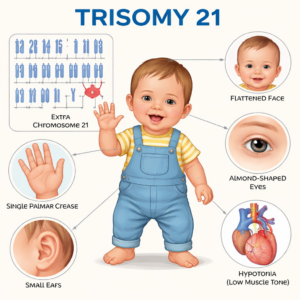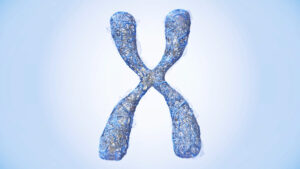Receiving a wrong diagnosis can be devastating for both the patient concerned and their family.
A wrong diagnosis can have many implications, including delay in ensuring the patient and their family receive the correct support and treatment. In some instances, it may even mean a misdiagnosed patient receives the wrong treatment and care options.
In the UK, up to 50% of rare disease patients have received at least one incorrect diagnosis during their diagnostic journey. Additionally, over 30% of these patients have experienced up to three misdiagnoses before finally receiving the correct diagnosis.
These figures emphasize the struggles and frustrations facing rare disease patients and their families. Without a correct diagnosis, patients cannot access the treatment and care that will contribute to improving their quality of life and future life outcomes. It may even lead to a deterioration of their health and medical condition in the meantime.
First of all, let’s take a look at what a wrong or misdiagnosis means exactly.
Misdiagnosis is when a medical professional assigns a diagnosis of a disease or health condition to a patient that turns out to be incorrect. This is a particular issue with rare diseases. Many genetic syndromes have overlapping features, and many syndromes are still undergoing more intensive and in-depth research to understand their causes and symptoms better.
The less we know about rare diseases, the more likely a misdiagnosis becomes. For people with these orphan diseases (conditions so rare they attract very little media and research attention), receiving the correct diagnosis can be a long and difficult journey.
Fabry disease is a rare genetic syndrome that is commonly misdiagnosed. As a multisystem disease, it shares similar symptoms with other conditions (Schindler syndrome, Gaucher disease) because some symptoms do not present until later in life. Up to 25% of patients with Fabry disease have received a misdiagnosis, and in most cases, females are more likely to be diagnosed or wait longer for a correct diagnosis than males.
For many patients and their families, a misdiagnosis is just one more delayed step in their diagnostic journey. The wrong diagnosis contributes to the extended time it takes many rare disease patients to find a conclusive diagnosis. The current average time for a correct rare disease diagnosis in the US is around 5 years. These figures do not truly represent the sheer number of doctor visits, appointments, tests, and assessments these figures represent. It does not properly convey the wasted hours spent traveling to appointments, visiting doctors, and the emotional cost all of this entails. It also does not properly convey the amount of time wasted in getting the right help to a patient with a rare disease, a patient who may suffer from other health and medical conditions that impact their quality of life.
However, in recent years there has been the beginnings of a concerted and global effort from the rare disease and medical communities to improve the diagnosis of rare diseases. These initiatives include the NORD Rare Disease Database, accessible to patients and their families. In 2020 alone, the EU made available over 1.4 billion euros worth of funds for rare disease research and innovation projects. And while these collective efforts will help rare disease patients receive a more timely and more accurate diagnosis, in the meantime, there is still a delay for patients and their families.

This is where new AI medical technology comes in.
It aims to shorten the diagnostic journey for rare disease patients and, at the same time, improve the accuracy of the diagnosis they receive. One leading example of this is the FDNA platform. It uses facial analysis recognition technology to identify the markers for thousands of rare diseases and genetic syndromes from a photo. This means genetic analysis that is fast and, most importantly, for patients already facing a misdiagnosis, accurate.
It also connects patients to genetic counselors who can interpret the technology and help families understand the next step in the pursuit of a correct diagnosis. This might involve further consultations with a geneticist and a referral for more specific, targeted genetic testing and screening. All of this support and counseling can be received online and from the comfort of your own home. Assisting rare disease patients to access specialist support and assistance helped shorten diagnostic journeys for many families.
Receiving what you later find out to be a misdiagnosis can be a lonely, frustrating, and difficult process. Until you have a correct diagnosis, it is impossible to access the support groups, information, and specialists who can make all the difference in a rare disease patient’s life. The Family Health Checker app helps parents address concerns about their child’s developmental and genetic health through AI-powered assessments offered on a free, user-friendly platform. Early diagnosis and intervention are crucial since many developmental delays are associated with genetic factors. After completing the assessment, parents receive a complimentary report highlighting potential areas of concern.
The app also offers options to connect with healthcare professionals for further evaluation and provides a no-cost genetic test for eligible children. Designed for security, ease of use, and compatibility across multiple devices, the Family Health Checker app allows parents to evaluate their child’s development conveniently at home. Though AI tools offer valuable assistance in the diagnostic journey, a healthcare professional’s evaluation is essential for definitive diagnosis and customized guidance.



